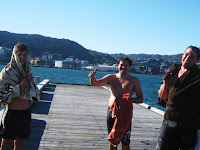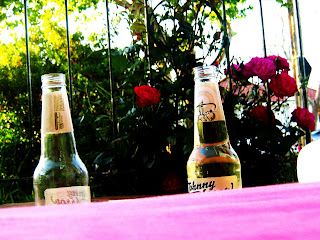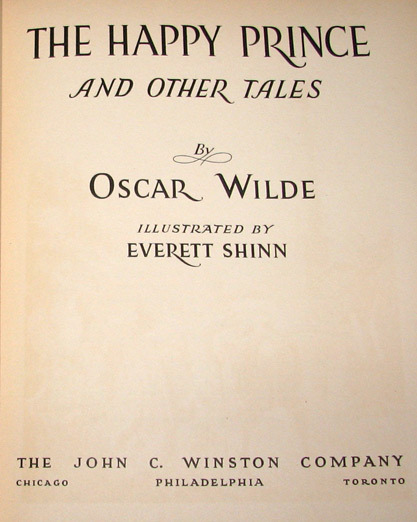Brooke Fraser is on C4 for about the 750 gazzillionth time today. (Such are the joys of spam in the popular music media, but don’t even get me started.) “That’s an awfully short skirt she’s wearing,” one of the energetically Anglican youths that seems to virtually live in my lounge comments, “for a Christian.”
...Say what?!
Firstly, this is hardly the pinnacle of cleavage bearing, coke snorting, reputation destroying, rock n roll. Cite Miley Cyrus’ latest music video, for those of you who have had the misfortune of viewing it, as the quintessential of evangelical pop-star gone wayward. This is wholesome, Kiwi bred, World Vision endorsing, widely respected Brooke Fraser we’re talking about here. As for the skirt in question- certainly a little sexier than a chorister’s cassock, but well within the realms of appropriate hemlines.
But, before I get into the details of the extensive frustration this comment caused me, spare me some time for a little disclaimer. I must emphasise that don’t profess to be any authority on religion whatsoever. There are countless important matters on which I wish I could be fierce and forthright in expressing my own opinion instead of wallowing in some apologetic stage of indecision. But religion is not one of them. I will always, always attempt to be as open minded as possible about religion. In fact I change my views on religion like I change my underwear, which, I reassure you, is regularly. So the following is just a reflection of my recent train of thought regarding that forever contentious topic. You may disagree, you may want to yell at me for being so senselessly stupid, in fact I’m not entirely convinced that I agree with myself. You may find my argument flawed, hypocritical, or utterly ignorant, in which case I would be delighted for you to show me the error of my ways.
I divulge. I promised you a tantalising piece on Jesus and short skirts. I may be over-analysing this particular comment but I believe a person’s piety or spirituality shouldn’t be expressed in abstinence or measured in Church attendance. I know too many people who profess strong theological beliefs in equality, charity and acceptance, yet are the first to make rude and judgemental remarks behind peoples’ backs. People who preach family values on a religious basis, yet regularly cheat on their girlfriends. I personally believe that religion, should you choose to embrace it (and I have no problem with other people doing so), should be about the big things in life, not a pedantic set of guidelines that constrict your drinking and your hemlines. I understand that religion isn’t always a pick ‘n’ mix smorgasbord which you can approach delicately with a pair of tongs to deliberately and carefully select certain appetising aspects. I also appreciate that we are all human and, I for one, am frequently and ashamedly guilty of often being far from the person I desire to be. I don’t necessarily have a problem with people making decisions regarding drugs, sex or how they spend their Sunday on a religious basis, but it truly pains me when these people live in a walking cloud of religious self-righteousness while committing as many mortal sins as the rest of us. If we are unable to master a messianic perfection of a pious life, surely we should attempt to focus on the important parts- doing to one another as we would have done to ourselves, loving thy neighbour, forgiving your enemies. Hell, do I sound naive and idealistic.
But as I’ve already bolted dangerously along the road of my idealistic circular argument, I won’t repent now. My potentially brash assumption is that it is perfectly possible live charitably, act kindly, love unreservedly, and forgive wholeheartedly without adhering to any specific religious guidelines. There are thousands of different theologies in the world, and yet the majority of them, while certainly allowing for variation, seem to follow one basic principal. While I am very nervous about suggesting such a notion as “universal values,” I do believe that there is one basic, fundamental human value that, however cheesily, supersedes religion, political loyalty, culture and ethnicity- Love. It is perfectly possible, I maintain, for an atheist to live a wholesome life that benefits and brings joy to others. There is nothing, whatsoever to suggest that a person with no religious conviction is unable to contribute to the world a saint-like virtuosity.
Certainly I think that a large number of religious doctrines are well grounded and entirely sensible. But something instinctively suggests to me that we don’t need to be walking embodiments of Christianity, Islam or any other religion to know that it is wrong to kill, or to hurt others. (Or maybe I feel this way because my upbringing in a Western, liberally Christian society has instilled such values into me, but I’m not convinced by this, and I’m already ranting too much to get into chicken and egg arguments).
 I am aware that in my comparatively privileged, middle class
I am aware that in my comparatively privileged, middle class P.S.
Some of you may be trying to read into the significance of me publishing this at Christmas time. I can assure there is none. I’m not the Grinch. This is a piece that I began quite some time ago, and purely coincidentally have happened to finish at Christmas. I do, in fact, love Christmas. I still feel a little bit of the magic that kids experience when they wake up and outrageous hours of the morning to discover in delight a stuffed Santa stocking at the foot of the bed. I love the family time, the giving, the food, and even the carols. Fucking hypocrite.
Merry Christmas kids.
I hope it's wonderful, whether you choose to celebrate Jesus or not.
I hope it's wonderful, whether you choose to celebrate Jesus or not.
xx





































